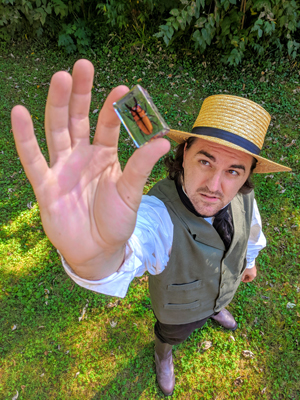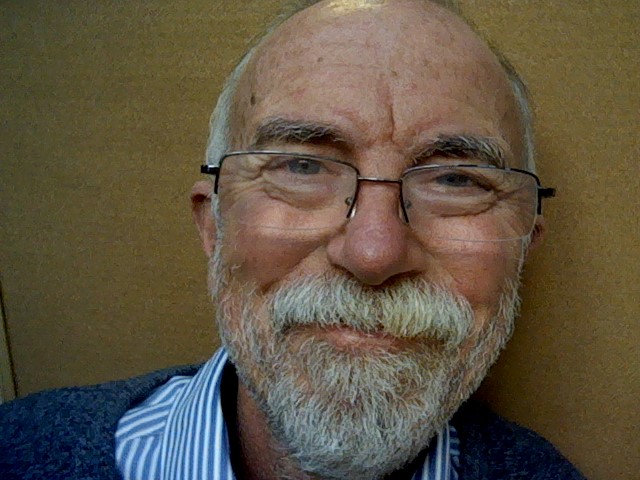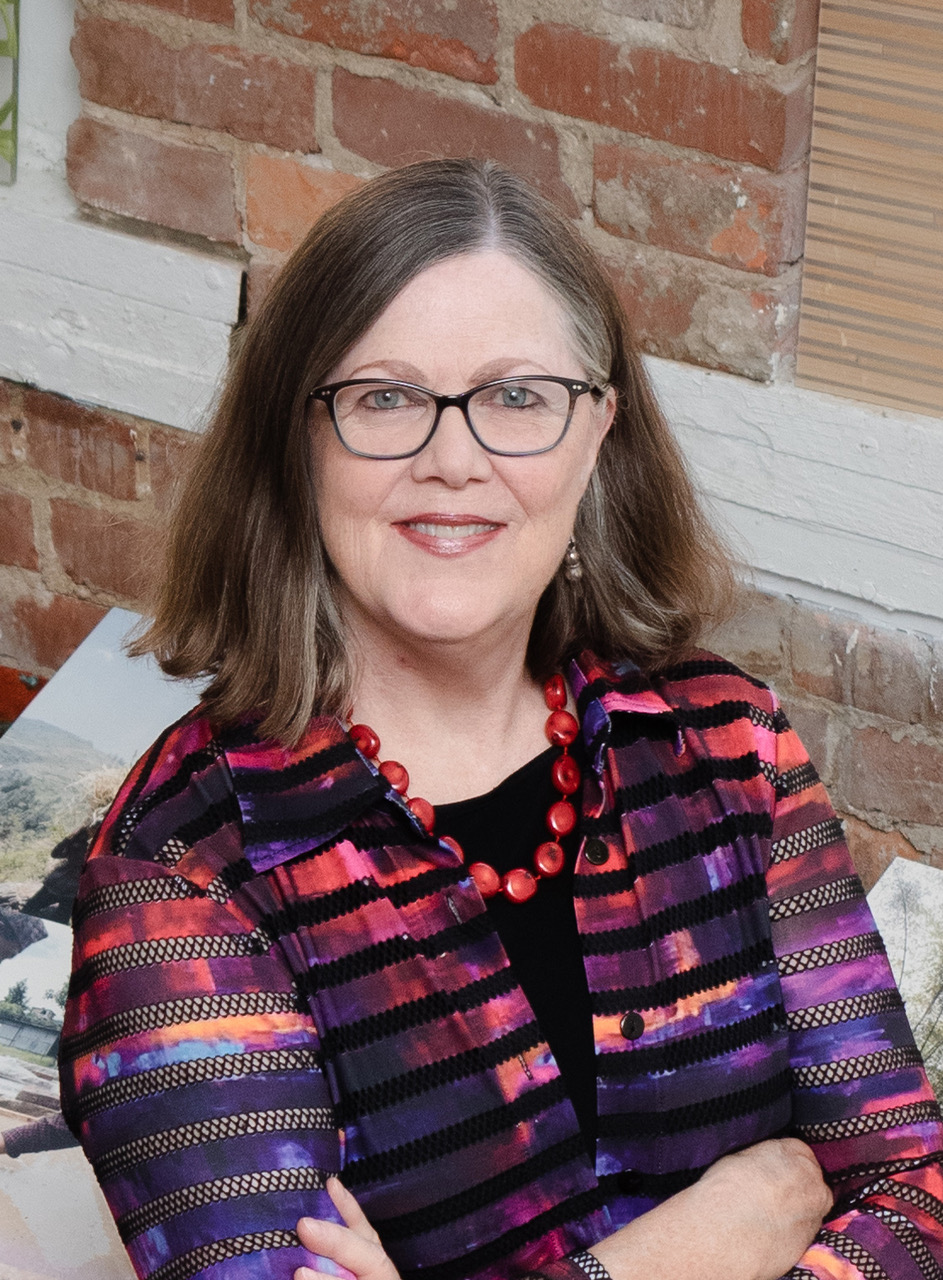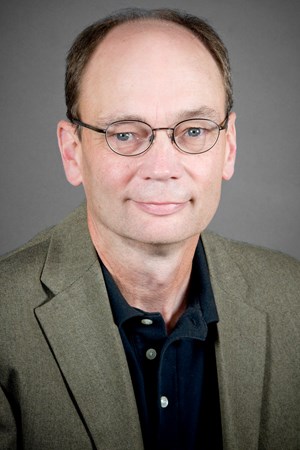
All events will follow University of Southern Indiana COVID-19 guidelines.

Fruits of Failure: Lasting Legacy of the Owen-Maclure Community of New Harmony, Indiana
Monday, April 26 from 1:00-2:00 p.m.
Dr. Bill Elliot
In January 1826, the passengers of the Philanthropist arrived in New Harmony, Indiana to participate in a social experiment led by Robert Owen and William Maclure focusing on communal living. Although this experiment dissolved by 1828, the community continued to innovate through art, education, music, printing, scientific investigation, and social justice. Specifically, the children of Robert Owen found success in a diversity of endeavors, attracting many well-known artistic, political, and scientific influencers of the day.
Dr. William Elliott earned a B.S. degree in Geology (1995) from the University of Pittsburgh at Johnstown, and a M.S. (1998) and Ph.D. (2002) in Geology from Indiana University. He started his teaching career at Southern Oregon University in 2002 and joined the Geology and Physics Department at the University of Southern Indiana in August 2009 as Chair. Since 2009, Dr. Elliott has developed a passion for the history and philosophy of Geology, and in particular, the historical significance of New Harmony, Indiana to scientific investigations conducted in the mid-nineteenth century. In 2014, Dr. Elliott installed a new museum exhibit entitled "New Harmony, Indiana: Crossroads of Geology" at the Working Men's Institute unveiled at the town’s Bicentennial Celebration. This work is supported from generous funding from Historic New Harmony and the Bigham Award of Historic Southern Indiana. Dr. Elliott also serves as a member of the Board of Directors of Historic New Harmony and continues to be engaged with research highlighting the historical significance of New Harmony.
See the presentation here.

Painting the Great Window
Thursday, May 20 from 1:00-2:00 p.m.
Matthew J. Mosca
Learn more about the recently restored fan window that sat above the Door of Promise at the Harmonist Brick Church as well as other examples of surviving finishes in New Harmony's historical buildings from historic paint researcher, Matthew J. Mosca.
Matthew J. Mosca, is a nationally recognized consultant in the field of historic paint research and restoration, employing microscopy, ultraviolet light exposure and microchemical testing as a means of identifying the constituents of paint finishes. He received his education at Cornell University, the Graduate School of the Department of Agriculture and the McCrone Research Institute and was a National Trust scholar of the Attingham School, Attingham England in 1978. Several projects have won awards for excellence over the years, and some, such as Mount Vernon and Hope Lodge, where the technology of the eighteenth century was replicated as accurately as possible, have been considered landmarks in the evolution of the field.
See the presentation here.
 The Frontier Scientist: Thomas Say
The Frontier Scientist: Thomas Say
Tuesday, June 22 from 1:00-2:00 p.m.
Imagine stepping aboard an experimental ship and making a two year journey to study alien life. Thomas Say will begin with the story of his 1819 zoological expedition to the Rocky Mountains, touching on his start in science, malaria on the journey, extinction and finally his move to New Harmony.
Timepiece Theatre offers educational outreach theatre for diverse audiences. Sparking interest in History and Science through personal stories of discovery, exploration and innovation.
See the presentation here.
The Unfashionable Mr. Owen
Thursday, August 26 from 1:00-2:00 p.m.
Dr. Gregory Claeys

Join Dr. Gregory Claeys as he examines Robert Owen's idea of exchanging conspicuous consumption for a rational frugality. Owen's opposition to fashion, in particular, indicates an attitude of rational consumption in which competition for the esteem of others, most notably through clothing, was to be substituted for the extraordinary flamboyance in display which marked his own time, and which in his view produced additional hardship for the working classes. Owen unfolded these views at various points, and several efforts were made to implement them at New Harmony and other communities.
Dr. Gregory Claeys is Professor Emeritus of History at the University of London. His eleven books include two studies of Owenism, Machinery, Money and the Millennium: From Moral Economy to Socialism 1815 - 1860 (Princeton University Press, 1987) and Citizens and Saints: Politics and Anti-Politics in Early British Socialism (Cambridge University Press, 1989). He has also edited Robert Owen: A New View of Society and Other Writings (Penguin Books, 1991), The Selected Works of Robert Owen (4 vols., Pickering and Chatto, 1993), and Owenite Socialism: Pamphlets and Correspondence (10 vols., Routledge, 2005).
See the presentation here.
Black Owenites: Cooperation and the Long Civil Rights Movement
Thursday, September 23 from 6:30-7:30 p.m.
Dr. Victoria Wolcott

Although not widely recognized, there is a long history of African American experimentation with cooperatives modeled after Robert Owen’s utopian communities. In Mound Bayou, Mississippi, an all-black town modeled on Owen’s utopian ideas, cooperatives thrived and the town served as a refuge for Black activists throughout the civil rights movement. In the early twentieth century W.E.B. DuBois became a major proponent of cooperatives, founding the Negro Cooperative Guild in 1918 and traveling the country promoting them. With the advent of the Great Migration, activists worked to replicate southern rural and small town cooperatives in the urban North. Join Dr. Wolcott as she examines Robert Owen’s influence on the African American cooperative movement and explores its significance for the long civil rights movement.
Victoria W. Wolcott is Professor of History at the University at Buffalo, SUNY. She has published two books: Remaking Respectability: African-American Women in Interwar Detroit (2001) and Race, Riots, and Roller Coasters: The Struggle Over Segregated Recreation in America (2012). Her new book Living in the Future: The Utopian Strain in the Long Civil Rights Movement, will be published by the University of Chicago Press in Spring 2022. In addition, she has published articles in The Journal of American History, The Radical History Review, and the Journal of Women’s History among others.
See the presentation here.
Robert Owen, Harmonic Passions and the Practice of Happiness
Tuesday, October 12 from 1:00-2:00 p.m.
Dr. Matthew Roberts

Universal happiness was the goal of Robert Owen’s ‘new moral world’ or the ‘rational system of society’, and he promised to eradicate bad passions. If Owen’s story is well known, much less has been said about what, exactly, he meant by happiness. In Owenite formulation, happiness meant something quite specific and tended to be used relatively: in short, happiness denoted the absence of negative feelings, and was to be achieved in quite prescriptive ways. As this presentation will show, the feeling of happiness for Owenites was inseparable from its practice. Focusing on the tensions and contradiction in Owen’s formulation of happiness – and feelings more generally – sheds new light on the reasons why Owenism failed on both sides of the Atlantic.
Matthew Roberts is an Associate Professor in Modern British History at Sheffield Hallam University in the United Kingdom. He is a historian of nineteenth-century Britain and the Anglophone Atlantic World, and works mainly on the history of popular politics and protest, the visual and material culture of politics and more recently the history of emotions. His book Chartism, Commemoration and the Cult of the Radical Hero was published by Routledge in 2020, and is now available in paperback. His talk on Robert Owen arises from his current book project, Democratic Passions: The Politics of Feeling in British Radicalism, 1809–1848, which will be published by Manchester University Press in May 2022.
See the presentation here.
Entangled
Thursday, November 11 from 6:30-7:30 p.m.
Docey Lewis
As a Robert Owen descendant who chose to live in New Harmony almost twenty years ago, Docey Lewis continues to be inspired by his prescient vision for a “New Moral World.” Owen funded his vision for an American utopia through success in his Scottish textile business, New Lanark Mill. Ms. Lewis' own long career in textiles has afforded her the opportunity to work globally and to participate in businesses, organizations and communities that often live and work cooperatively to improve the lives of artisans. Their co-creation with nature, ancestral knowledge, artisans and the marketplace never ceases to bring her both joy and a deep respect for their interconnectivity.
Having not been able to make her usual international travels for the past year and a half, Ms. Lewis has spent time in her New Harmony, Indiana studio, making art, entangled in a myriad of recycled materials, rejects, studio detritus and her own hopes and fears for the future. Utopia is much on her mind.
Her story is not one of ground-breaking ideas, but rather, the tale of a foot soldier on the path of trying to do good through commerce. One does not need the fortune of a Robert Owen to do the right thing, but one must have a vision, and not be afraid to work hard, play well with others and be somewhat fearless.
“Entangled” weaves a tale of how Robert Owen entered Docey Lewis' life as an ancestor-mentor, whose ideas she studied and attempted to apply throughout her career.
Docey Lewis has worked for forty years in over forty-five countries as a designer and sourcing consultant for commercial companies, governments and international development organizations. She began her career in San Francisco as an artist, weaver and yarn designer, developing fabrics for fashion and interiors. In the 1980s Docey founded IMA Designs, a weaving factory and commercial design studio in the Philippines with a focus on fashion, interiors and natural fiber wall coverings. Docey and her son Owen currently operate a studio, DESIGN BANK 505 in New Harmony, and are advisors to a weaving and papermaking factory in Kathmandu, Nepal. Docey is the chief design consultant for 3form, Inc’s Full Circle product line. She has been a senior consultant to Aid to Artisans (ATA) since 1988, most recently working on organic cotton in Senegal and loom weaving in Mexico and has served on ATA’s board as well as on the boards of the Full Circle Foundation, Vital Edge Aid, the HandEye Fund (HEF), and the Robert Lee Blaffer Foundation (RLBF).
Returning to her self-taught art roots, Docey is exploring how to unplug from a fast international life with slow cloth, to a slower creative life in her own backyard, at least while the pandemic lasts. This has resulted in art exhibits at the New Harmony Gallery of Contemporary Art (2019/2020), 4ll Gallery (Columbus, IN, October/November 2021), and the Big Car Collaborative (Indianapolis, IN, October 2022).
See the presentation here.
Robert Owen’s Impact and Legacy in Nineteenth-Century France
Wednesday, December 8 from 6:30-7:30 p.m.
Dr. Casey Harison

Robert Owen influenced well beyond his native Great Britain. France is a logical place to look for Owen’s influence because it was the home of like-minded reformers and social innovators, who, like Owen himself, famously were labeled by Karl Marx as “utopian socialists.” Many also struggled with ways to answer the century’s Social Question: how to bridge the gap between the promises of the eighteenth-century Enlightenment and French Revolution and the unhappy conditions of social and economic life in their own day.
Most examinations of the Social Question in nineteenth-century France focus on the utopian socialists or the other revolutionaries, reformers and political thinkers of varying fame who took part in the country’s tumultuous political history of the era. Instead, this presentation will examine the impact of Owen on two political personalities who are less well known to us today, though they were influential figures in their own time: the revolutionary insurrectionist Louis-Auguste Blanqui (1805-1881) and the working-class reformer Martin Nadaud (1815-1898).
Casey Harison is Professor Emeritus of History and former director of the Center for Communal Studies at the University of Southern Indiana, where he has taught courses in Modern European and World History since 1992. He has written books and articles on French and Atlantic social and cultural history. His books include a survey of modern Paris designed for the college classroom, Paris in Modern Times: From the Old Regime to the Present Day (Bloomsbury, 2019) and a Transatlantic history of the British rock and roll band The Who, Feedback: The Who and Their Generation (Rowman & Littlefield, 2015). Harison also edited A New Social Question (Cambridge Scholars Publishing, 2015), which is a collection of papers drawn from a conference in New Harmony to celebrate the 200th anniversary of its founding.
This program has been made possible through a grant from Indiana Humanities
in cooperation with the National Endowment for the Humanities.

The Robert Owen 250th Celebration is also brought to you through the generous support of Dr. George and Mrs. Peggy Rapp.